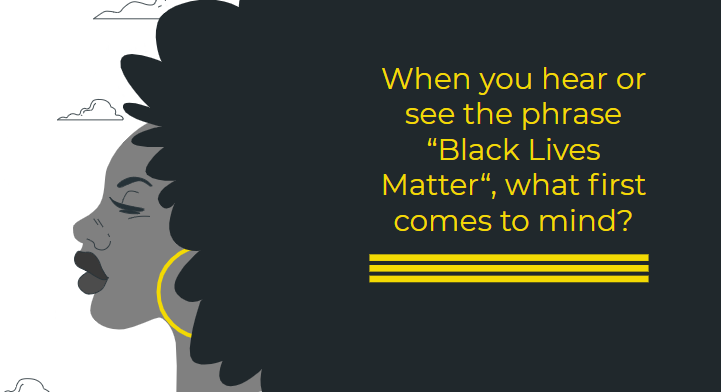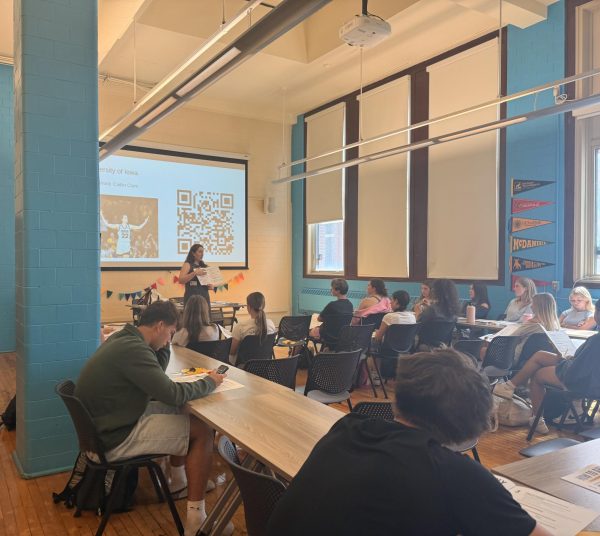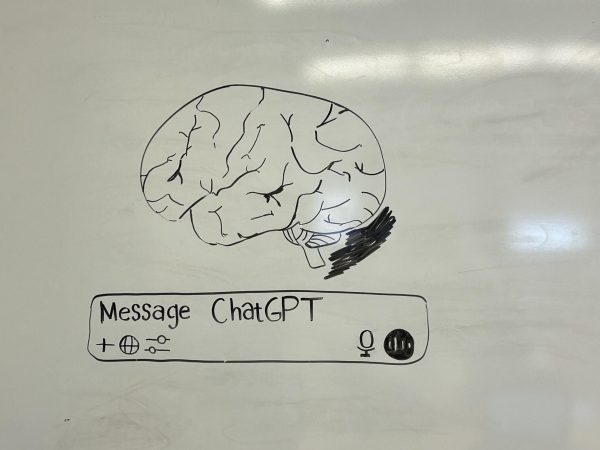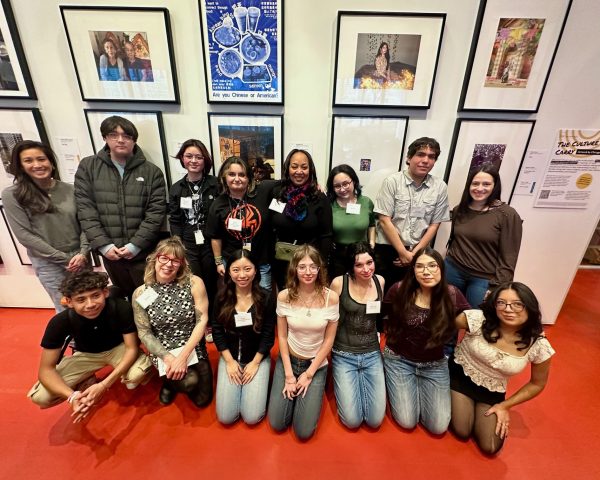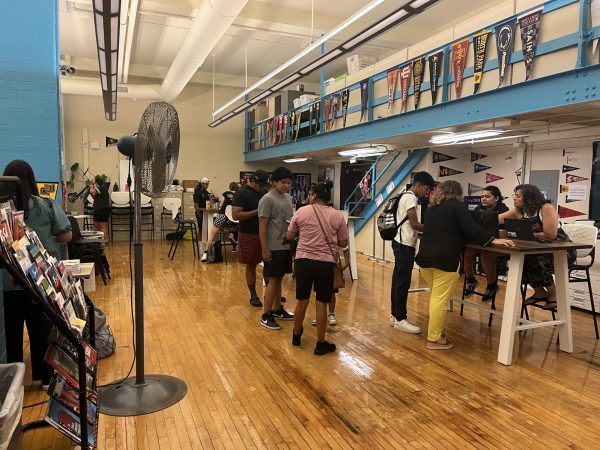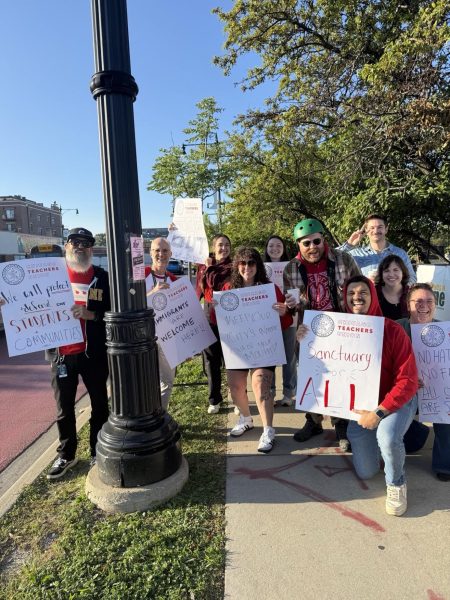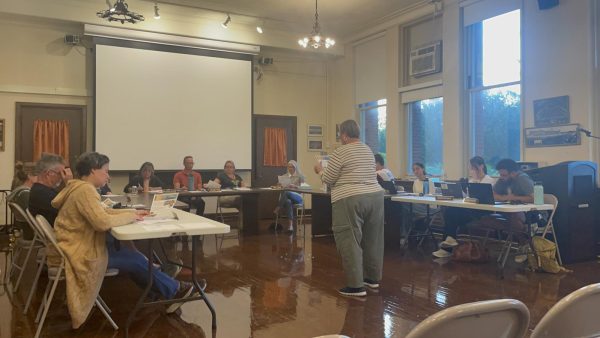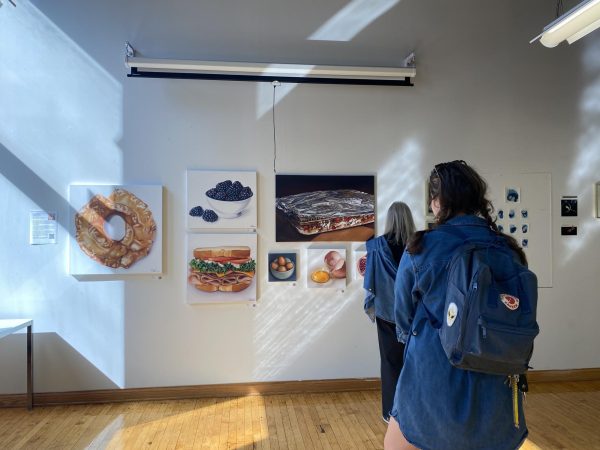Student-led BIPOC Advisory Committee debuts first Black Lives Matter lesson to widespread approval
The Nov. 18 Black Lives Matter advisory lesson was created entirely by the student-led BIPOC Advisory Committee. (Screenshot from advisory presentation)
When Ianece Coleman saw last month’s Black Lives Matter advisory presentation, which many students decried as performative and superficial, she knew something needed to change. Fast forward a month, and she and a group of 35 other BIPOC students, members of the newly formed BIPOC Advisory Committee (BAC), have taken matters into their own hands.
Eight students on the committee, which the administration started after last month’s lesson, were responsible for creating Nov. 18’s second Black Lives Matter presentation. It included definitions of implicit bias and performative activism and connected students with petitions, Black-owned businesses, suggested media, and other ways to get involved and pursue anti-racist education. The presentation was well-received among the school community, according to Coleman, Div. 272, who has a leadership role on the BAC.
But what was different this time around?
Paris Smith, Div. 271, said that the inclusion of performative activism made the discussion more relevant to her and her classmates, and that sharing concrete ways to contribute to the movement was a nice touch.
According to Director of Culture and Climate Ms. Escobar, who oversees the committee, it was the student and teacher engagement.
While students had no hand in creating last month’s lesson and few teachers attended the optional training, this month’s presentation was entirely student-produced, and the BAC led workshops last week that 45 teachers attended, according to Escobar. To further prepare teachers for delivering the presentation, the BAC created a document with tips for presenting and disseminated a video that featured students of color describing what support they need to have a better school experience. The committee hopes to continue this teacher-student engagement as it plans the rest of the school year’s social justice advisory lessons.
According to Escobar, “I think the difference is that the teachers are committing to this and are really working through maybe uncomfortable moments for the kids.” She added that the video, sent to teachers on Nov. 6, allowed teachers to listen to and connect with their students.
Mr. Comiskey, a Lane music teacher, said the video helped teachers put the struggles of students of color into perspective.
“I think there are still many teachers who think about this work in the abstract/theoretically, as ‘something we need to work on as a school’ or ‘something administration wants us to do’ rather than an obligation to do right by their students and something that really affects the lives and experiences of individuals,” Comiskey told The Warrior via email. “When there’s a video like that and teachers are recognizing individual students asking us to do/be better, there’s just no brushing it aside, pretending it’s just another thing to worry about, or another thing to distract from curricula.”
He added, “While I fear, especially in classes where there are only a couple Black students, there will be some growing pains and awkward moments, normalizing these conversations, asking teachers to interrogate their whiteness, and uncovering how it affects their teaching is going to be the biggest factor in making our school as safe a space as possible for every student.”
According to Coleman, the BAC is aware of these challenges and hopes that the resources they provide will eventually make teachers more comfortable leading these discussions.
In the workshops, Coleman said the student committee members let teachers know “that it’s OK to not have all the answers — don’t lie about that, just be honest and forthcoming. You’re learning as much as some of your students. We let them know that a conversation is really what we’re trying to get going here, along with educating everyone, so if your kids just want to talk about this, they just want to speak their feelings and let loose, let that happen.”
In future advisory lessons, the BAC hopes to bring light to other minorities’ experiences in America, according to Escobar.
“They [the BIPOC Advisory Committee] want to include everyone who feels powerless, who feels like their voice has been minimized at some point or another. So they’re talking about the Black community, they’re talking about the Latinx community, the undocumented community, the transgender, the LGBT community,” Escobar said. “They want to bring everyone into it — the Indigenous community. They are wanting to be the voice for everyone.”
In keeping with this, Escobar said that the advisory lesson on Dec. 2 will delve into microaggressions and racial bias against the Latinx, Asian and Indigenous communities. Because of the time constraint, though, the committee may not offer teacher workshops before this lesson.
Though participating in the committee takes “hours on your weekends, hours during your school days,” Coleman said she finds the work necessary and enjoyable, and thinks it can make a long-lasting change at Lane.
“For Lane, at least, I imagine it being a happier future that I’m seeing. It kills me to see the majority of kids in this school not feeling like they’re heard or they’re cared about, and it’s ridiculous, especially given that our school is majority minority students. For our school, I want to see that change,” Coleman said. “Seeing admin and teachers and students come together and really change that to make a future that can be better for the BIPOC kids is amazing.”
This is hard work, Coleman said, but she is confident the BIPOC Advisory Committee can reshape the way Lane addresses racism.
“The goal here really is long-term change,” she said. “And I really think that we might be able to do that — we will be able to do that.”
Your donations directly fund the Lane Tech student journalism program—covering essential costs like website hosting and technology not supported by our school or district. Your generosity empowers our student reporters to investigate, write, and publish impactful stories that matter to our school community.
This website is more than a publishing platform—it's an archive, a research tool, and a source of truth. Every dollar helps us preserve and grow this resource so future students can learn from and build on the work being done today.
Thank you for supporting the next generation of journalists at Lane Tech College Prep!

Naturally having harnessed the wisdom that comes with age, Finley, now a senior in her third year with The Champion (formerly The Warrior), spends her...

